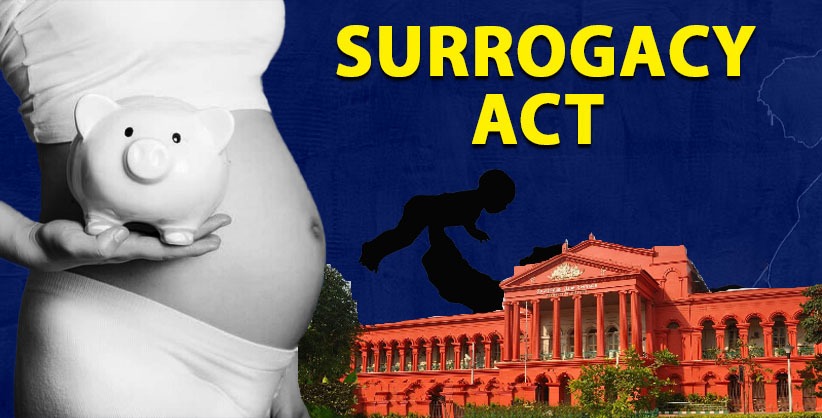NEW DELHI: The Karnataka High Court has declared that the clause in the Surrogacy (Regulation) Act mandating that the surrogate mother should be genetically related to the intending couple defeats both altruism and logic.
Justice M Nagaprasanna said that altruistic surrogacy should mean surrogacy by an outsider, while dealing with a plea by a couple challenging the provisions of the law.
The couple has filed a petition challenging the validity of Sections 2(1)(zg) and Section 4(iii)(c)(I) of the Surrogacy (Regulation) Act after they have lost their 23-year-old son, an MBBS student, in a road accident in Mangaluru in December 2022.
Since the wife had had her uterus removed, the couple, on medical consultancy, decided to have a child by way of surrogacy. The husbands sister-in-law had come forward to donate her egg, while a close family friend agreed to be a surrogate mother.
The petitioners contended that the provisions of the act have created an embargo.
Section 4(iii)(c)(I) mandates that the intending couple should be married, and the woman should be between the age of 23 and 50 and the male should be between 26 and 55 years on the date of certification.
And, Section 2(1)(zg) mandates that a surrogate mother can only be a woman who is genetically related to the intending couple or intending woman. Though the wife is aged 45, the husband is 57 years old and the woman who has agreed to be the surrogate mother is not a relative but a family friend.
The counsel for the Union government said Parliament had thought it fit to regulate surrogacy as there were cases of exploitation of women by the affluent for taking the womb on rent. It was further submitted that the petitioners will have to approach the State Surrogacy Board, under the rules for redressal of their grievance and cannot call in question the provisions of the act.
Considering the peculiarity of the case at hand, the court allowed the petition in part, saying the petitioners must cross the wall of triple tests: genetic test, physical test, and economic test, so that their application can be considered. The state authorities have been directed to consider the application upon conducting the triple test.
Insofar as Section 2(1)(zg), the court said that what is permitted under the act is altruistic surrogacy and not commercial surrogacy.
The words genetically related appearing in Section 2(1)(zg) can only mean that the child to be born through surrogacy should be genetically related to the intending couple, failing which, the words genetically related would not have any meaning if it were to be said that the surrogate mother should be genetically related to the intending couple. That defeats both altruism and logic, the court said.
However, the court has not considered the prayers challenging the provisions since the very provisions are pending consideration before the apex court.
"Though the petitioners have called in question the provisions. It is brought to the notice of this Court that the entire gamut of challenge to the provisions of the Act is pending consideration before the Apex Court where the National Board of Surrogacy has been asked to submit their reply to all the contentions advanced before the Apex Court. Therefore, striking down the provisions as sought by the petitioner, at this juncture, is unavailable. They would all remain subject to, further orders to be passed by the Apex Court," the bench said.







